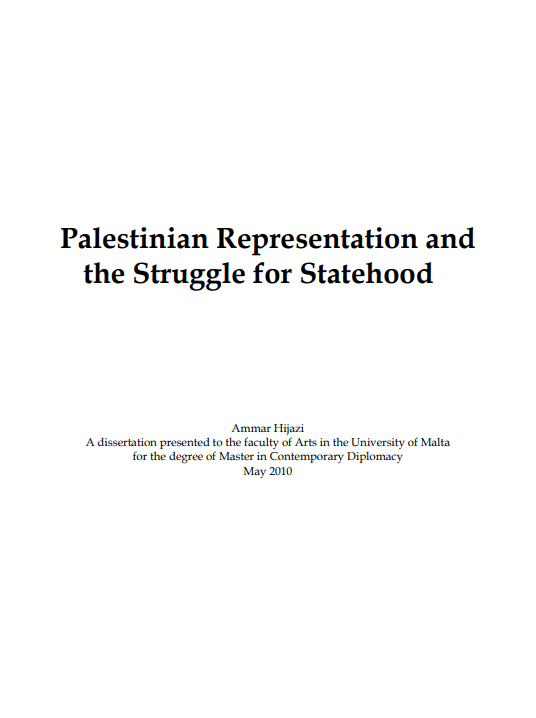Palestinian representation was greatly and negatively affected by competing regional and international players. These influences often translated into the potent danger of fragmentation. Hence achieving political independence for Palestinian representation was a crucial victory of evolved political thought. It also opened the door to regional and international recognition.
International powers have manipulated this issue several times in order to crush Palestinian aspirations and debilitate the efforts towards achieving statehood. This manipulation is easiest at times of internal division as it enables opponents of Palestinian aspirations to stunt efforts leading to their achievement. Hence, the onus of preserving Palestinian representation lies squarely on Palestinians as failing this strategic responsibility could indefinitely set back the national aspirations.






